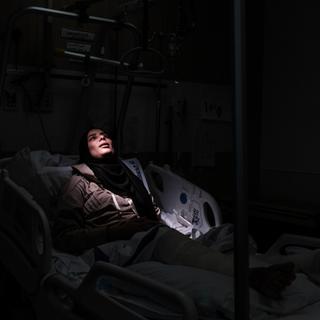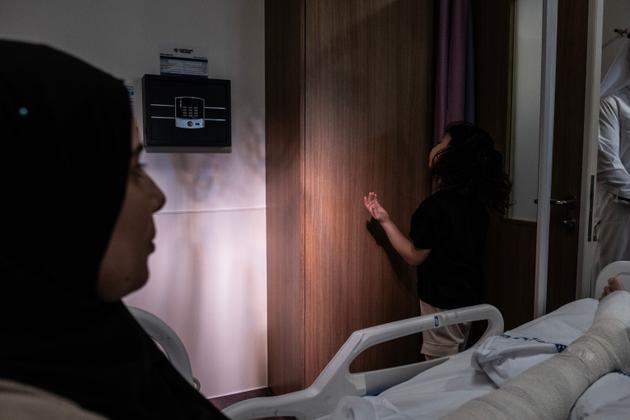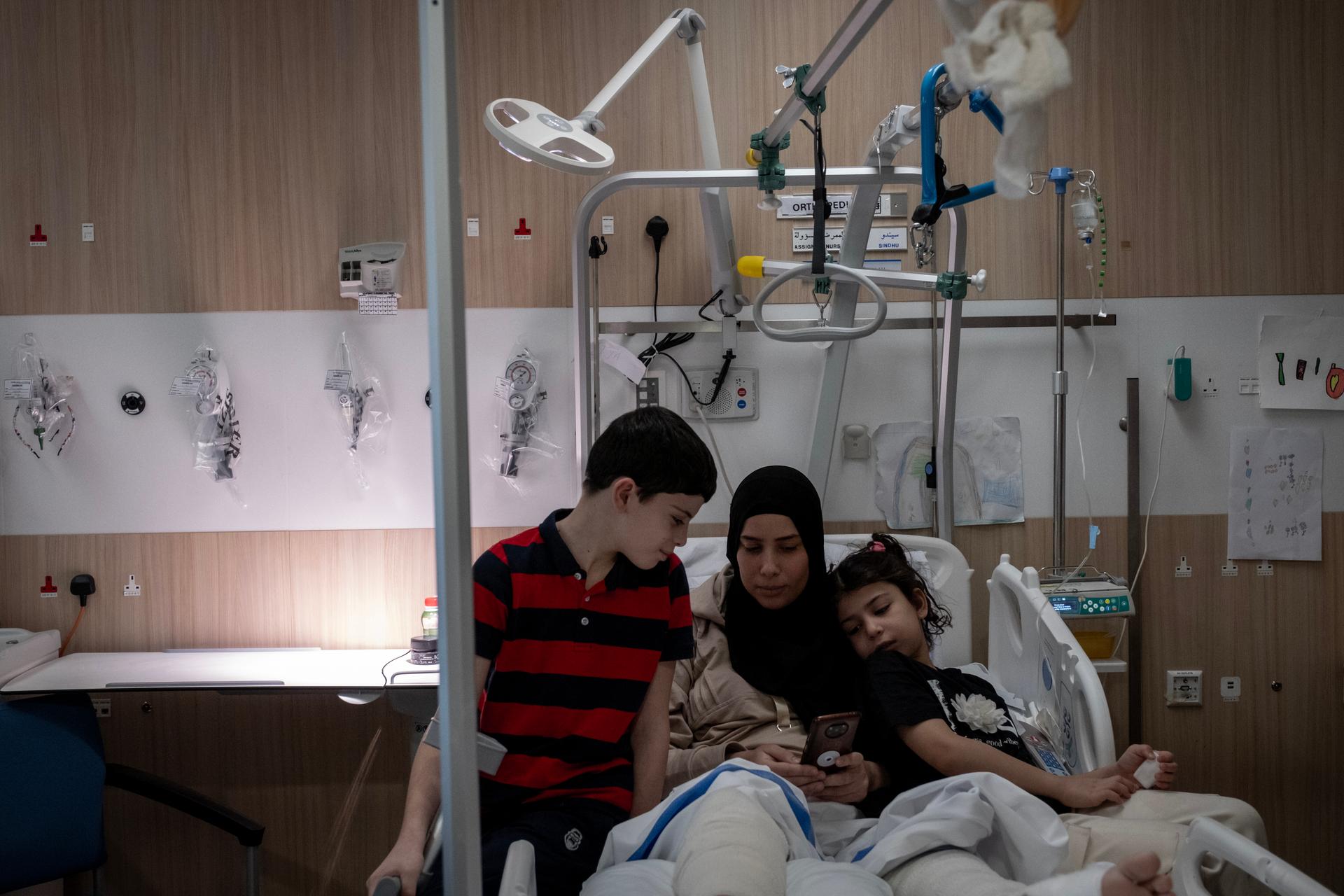


In Doha, Gaza survivors slowly come back to life
FeatureSince the start of the war in Gaza, almost 800 Palestinians wounded in Israeli bombardments have been treated in Qatar. These survivors bear scars, many are amputees and all are consumed with anxiety for loved ones left behind.
Shaïma Al Ghol couldn't take her eyes off the TV screen above her hospital bed. Speechless, she watched images on the Qatari channel Al-Jazeera showing the wreckage left in the wake of the latest Israeli bombardments in the Gaza Strip. "My family is still there," said the 33-year-old Palestinian woman, her bandaged legs stretched out on the bed. "I'm here in Doha, but my father, my brother, my mother, my sister and her family all live in a tent in Rafah. How can I not follow the news?"

Her home in the southern part of the Gaza Strip was bombed on February 12. Her husband, Abdallah, their daughter, Jinan, aged 10, and their son, Mohamed, aged 15, were all killed. Since March 18, Al Ghol, along with her two living children, Hodayfa and Maryam, and her sister-in-law, has been in Qatar, at Hamad Hospital, which specializes in surgery. Since the start of the war with Israel on October 7, 2023, following the bloody Hamas attack on Israel, Qatar has evacuated more than 2,300 Gazans, around 800 of them for medical reasons.
On her cell phone, the young woman showed a video of Hodayfa, filmed just after their house was bombed. The 10-year-old boy's face and body were covered in dust, as he had just been pulled from the rubble of the collapsed building by a neighbor. "My siblings and my parents are trapped under the debris," he screamed, in tears. Another photo, saved in Al Ghol's phone and now a viral image, shows her daughter Jinan's lifeless body, clinging to a wall in the explosion's aftermath.
Al Ghol lay unconscious for days, her legs and back riddled with shrapnel. She underwent 47 operations. Her son, who walks with a crutch, underwent 10. Still smiling, she explained that her late husband "hadn't yet come" to her dreams. "But my brother saw him once. Abdallah gave him a chocolate for me. And another time, his niece saw him. Abdallah asked her how I was doing. But why doesn't he come to see me directly? He will eventually come. Yes. Inshallah!"
'What house?'
When asked how, after so much trauma, she still manages to smile, Al Gohl raises her voice: "Do you want me to cry? Crying has never done us any good. If I cry in front of my children, they'll break down." Hodayfa, though, cries at night. His mother tries to distract him. She herself broke down once when her children went to a mall near the hospital.


Since the beginning of the conflict, Qatar has carried out around 10 operations to evacuate wounded or sick Palestinians from Gaza. These transfers are part of "the country's global diplomatic strategy, in other words, its soft power, and its construction as an influential player on the regional and global map," explained researcher Nikolay Kozhanov, an associate research professor at Qatar University's Gulf Studies Center. The history of modern Qatar is marked by its quest for security. With this in mind, the country needs to increase its importance on the international stage. Due to its small size and population, it cannot maintain a large military force. However, Qatar has financial resources from its liquefied natural gas industry. This enables Doha to invest in humanitarian aid, assistance to populations in conflict regions and mediation.
You have 57.75% of this article left to read. The rest is for subscribers only.
